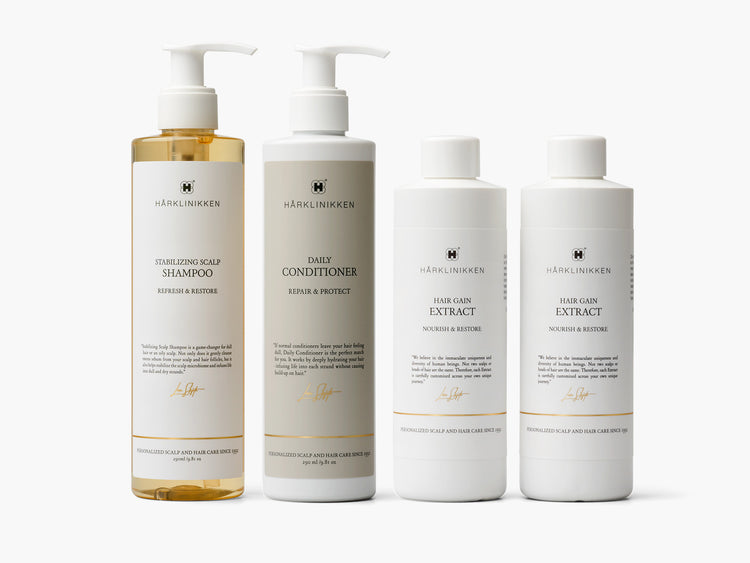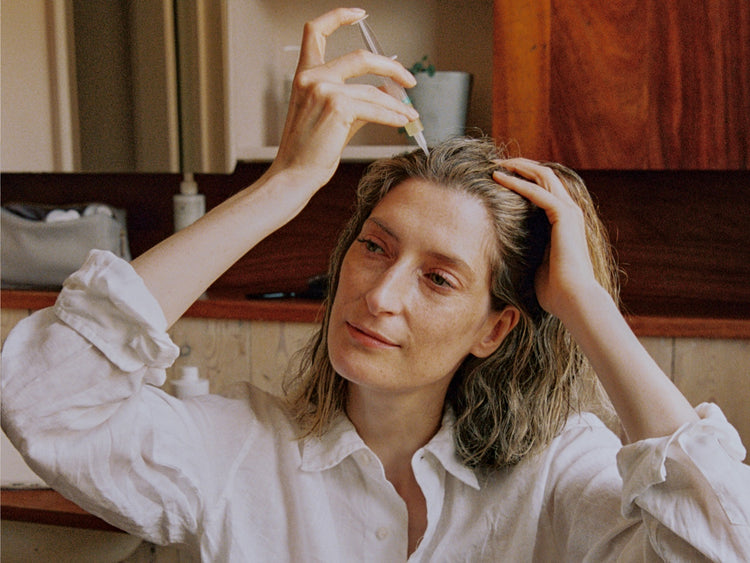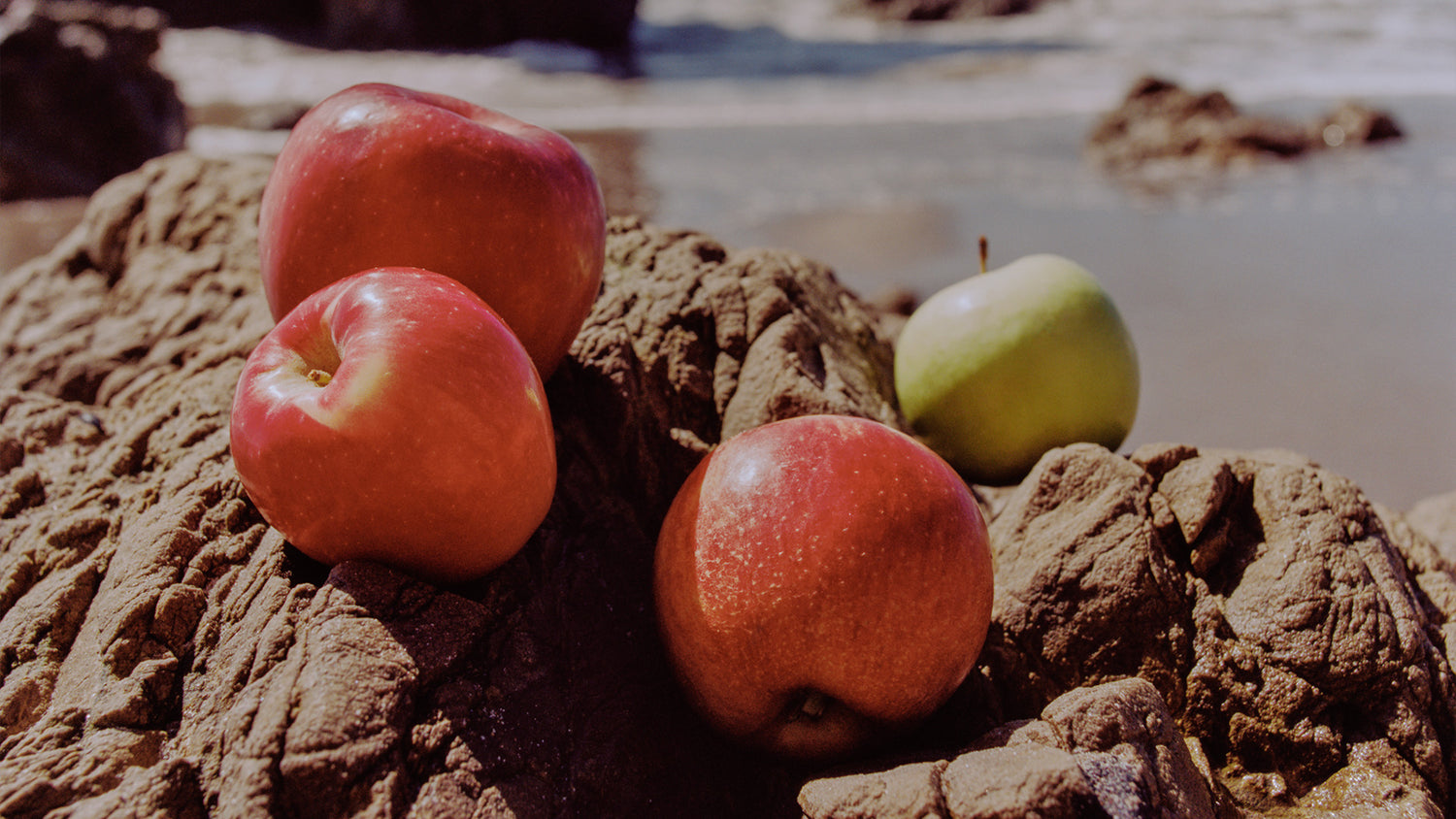Optimizing hair growth starts with proper nutrition, as hair follicles require a steady supply of key nutrients to function efficiently.
If you're looking to improve hair growth, think about what you eat. Nutrients like zinc, biotin, iron, and protein are important for keeping your hair follicles in a more optimal condition and supporting the growth phase of the hair cycle. When your body lacks these key nutrients, it can lead to thinning, breakage, and slower regrowth.
The good news is that adding the right superfoods to your diet can help strengthen your hair from the inside out.
1. Eggs: biotin
Eggs are a nutrient dense superfood that provide a wealth of different nutrients. Egg yolks are a natural source of biotin, an important B vitamin (B7) for hair growth and generation.
Biotin specifically supports the production of keratin, a protein that makes up hair, skin, and nails. In fact, a biotin deficiency can result in brittle nails and hair loss, which is why it is important to ensure that your diet contains enough of this B vitamin.
Egg whites are a great source of protein, which is crucial for the growth of new hair. It’s important to have enough protein in your diet as hair follicles are primarily made up of protein.
2. Red meat: iron
Iron plays a pivotal role in healthy hair growth. Iron is an important component of hemoglobin, the protein found in red blood cells. If you have an iron deficiency, it will be harder for the body to produce hemoglobin, which in turn can result in hair loss or hair breakage. In fact, there is a study that analyzes the correlation between an iron deficiency and female patterned hair loss.
Iron deficiencies are common among women of childbearing age, which is why it’s important to have enough iron-rich foods in your diet. Red meat is one of the richest dietary sources of iron and one of the best ways to increase iron levels naturally.
3. Berries: vitamin C and antioxidants
Did you know that most berries contain more vitamin C than oranges? Strawberries, blueberries, blackberries, and raspberries are rich in vitamin C and antioxidants called anthocyanins, which give berries (and pomegranates) their deep purple, red, blue hues. These polyphenolic compounds, along with the vitamin A and C content, are both protective of collagen and important for collagen synthesis.
Vitamin C functions as a critical coenzyme in the process of forming collagen from individual amino acids. While hair itself is not composed of collagen, this structural protein is vital for maintaining the integrity of the dermis and supporting the strength of hair follicles. Maintaining a healthy dermis and scalp is an important part of healthy hair growth, and incorporating berries into the diet offers a simple and nutritious way to support these foundational elements.
4. Fish: omega-3 and collagen
Fish like salmon, cod, mackerel, anchovies, and sardines are great additions to your daily diet for both hair health and numerous aspects of your overall health, including your heart health.
Fatty fish including salmon and mackerel are great sources of omega-3 fatty acids. Omega-3 supplementation has been shown to help slow down hair loss in 120 healthy women in a clinical study.
Fish scales and bones provide the most bioavailable form of dietary collagen types 1 and 3, which are the same types of collagen found in your skin and scalp. Consuming cod, anchovies, and sardines is a great way to increase dietary collagen to support your hair health.
5. Avocados: vitamin E
Avocados are rich in vitamin E, which is a fat-soluble nutrient that supports skin health, eye health, and hair health. As an antioxidant, vitamin E has a protective effect on skin, both on the face and on the scalp. Tocotrienols, which are a naturally derived form of vitamin E from plant sources, have shown some efficacy in supporting hair growth.
A small clinical trial conducted on tocotrienol supplementation showed improvements in hair growth in volunteers who were suffering from hair loss. Some other dietary sources of vitamin E include almonds, peanuts, pine nuts, sunflower seeds, spinach, eggs, and nut butters.
Vitamin E also has positive impact on hair shine and hydration, especially in heat damaged and chemically treated hair.
6. Spinach: plant-based iron
Spinach is a superfood that supports healthy hair growth due to its high vitamin A, C, and iron content. Iron is an essential component of hemoglobin, the protein in red blood cells that carries oxygen throughout the body—including the hair follicles. When the body lacks sufficient iron, it struggles to produce enough hemoglobin, which can lead to hair thinning, breakage, or even hair loss. For vegetarians and vegans who can’t get enough iron through their diet, spinach is a great plant-based source that can help balance iron levels. Vegans can also enjoy plant-based sources of iron like beans, peas, lentils, broccoli, pumpkin seeds, baked potatoes, and tofu.
This is particularly relevant for women of childbearing age, who are more prone to iron deficiency. As a leafy green, spinach is a great plant-based option for boosting iron intake, making it an excellent addition to the diet for those looking to support hair health.
7. Pumpkin Seeds: magnesium and natural DHT blocker
Pumpkin seeds are an excellent source of magnesium, a mineral that plays an important role in many enzymatic reactions in the body, including those related to hair health. This mineral can help the hair follicles receive the nutrients and oxygen they need to grow strong, healthy hair.
A more popular use of pumpkin seeds and pumpkin seed oil is for their ability to naturally inhibit DHT, a byproduct of testosterone. Elevated DHT levels can shrink hair follicles and shorten the hair growth cycle, particularly in individuals genetically sensitive to it. This can result in hair follicle miniaturization, which means that your hair follicles are gradually shrinking, and the hair produced from those hair follicles gradually becomes thinner, finer, shorter, and less lustrous.
That is why pumpkin seeds can be especially beneficial during menopause, when estrogen levels drop and the relative increase in testosterone can lead to higher DHT levels, worsening hair loss. By helping to reduce DHT, pumpkin seeds may offer a natural, non-invasive option for women experiencing post-menopausal hair thinning.
8. Sweet Potatoes: beta-carotene
Sweet potatoes are a great source of beta-carotene. Beta-carotene, a nutrient found in colorful fruits and vegetables like carrots, sweet potatoes, and spinach, convert into active vitamin A for the body to utilize.
Why is vitamin A important for healthy hair? Because it helps keep the skin and hair follicles functioning properly. This nutrient travels through your blood to reach your skin and hair. Once it gets there, your body turns it into a special form (called retinoic acid) that helps control how skin and hair cells grow. This process keeps your hair follicles healthy and active, allowing hair to grow as it should.
When deficient, you can develop a condition called follicular hyperkeratosis, where dead skin builds up around the hair follicles, clogging them and interfering with normal hair growth. Clogging your hair follicles may throw off your scalp’s balance which could lead to irritation, inflammation, and ultimately hair shedding.
Eating enough of these foods is important for preventing deficiency and supporting smooth, healthy hair growth.
9. Soy Products: spermidine
Soy products like tofu, soy milk, and edamame may support healthy hair growth because they are naturally rich in a compound called spermidine.
Spermidine has been shown to help keep hair in its growth phase, also known as the anagen phase, for a longer time. This means that hair has more time to grow before it sheds. In studies, people who consumed spermidine (through supplements) had more active hair follicles, increased levels of cell growth markers, and less hair loss over time.
Since soybeans are one of the best natural sources of spermidine, regularly including soy-based foods in your diet may offer similar benefits. However, more research is needed to confirm how much spermidine from food is needed to support hair growth.
10. Shellfish: zinc
Eating shellfish like crab, lobster, mussels, shrimp, and oysters can be an excellent way to support hair growth thanks to their high zinc content. Zinc is important for maintaining strong hair follicles, regulating hormones that influence hair health, and supporting the production of DNA and RNA necessary for healthy cell division during the anagen (growth) phase of the hair cycle.
Regularly including zinc-rich foods in your diet can help prevent zinc deficiency, which is known to cause hair thinning and premature shedding. This nutrient also supports immune function, healthy testosterone levels in men, and metabolism.
That said, it’s important to consume shellfish thoughtfully. If you’re pregnant, thoroughly cook shellfish before eating it to minimize your risk of food poisoning.
Most importantly, care for your gut health
A balanced diet of protein, vegetable, fruit, and healthy fats is vital for your hair health, as hair health is closely tied to your overall bodily health.
While these foods contribute to overall gut health by adding in gut-friendly fiber and minerals, it’s also important to support your gut with an ample amount of probiotics. Probiotics are healthy gut bacteria that support your daily digestion, bowel regularity, and nutrient absorption; they can be found in yogurt and fermented foods like sauerkraut and kimchi.
With that in mind, we formulated our Hair Supplement to contain Lactobacillus casei, a healthy probiotic strain that provides daily gut support. This synergistic formula also contains ingredients like Panax Notoginseng and Astragalus Membranaceus, which help the body absorb nutrients more efficiently through the gut wall, so that it supports your digestion before, during, and after meals.
Our Hair Supplement also contains ingredients that are clinically proven to address different areas of hair health. AnaGain Nu® Organic pea shoot extract promotes denser-looking hair; saw palmetto extract is a natural DHT-blocking botanical; D-biotin is a bioavailable form of biotin; pomegranate extract is rich in antioxidants; and KSM-66® Ashwagandha Root addresses stress-related hair shedding.

Unsure where to start?
We only accept candidates who we believe we can help, which is why our online Hair Assessment is the best place to start. Based on your results, you will either qualify for immediate treatment or we will organise a consultation.




